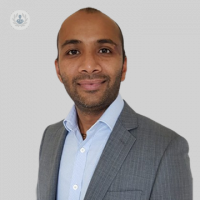Familial hypercholesterolemia: steps to combat the condition
Written in association with:Familial hypercholesterolemia (FH) presents as a silent yet perilous condition affecting approximately 1 in 200-300 individuals worldwide. This inherited genetic disorder results in abnormally high levels of low-density lipoprotein cholesterol (LDL-C) in the blood, significantly increasing the risk of premature cardiovascular diseases such as heart attacks and strokes.
With a 50% likelihood of cardiovascular disease striking males with FH before their 55th birthday and a 33% probability for females before their 60th birthday, it becomes incumbent upon society to raise awareness about FH and take proactive measures to assist those affected. Leading consultant cardiologist Dr Dushyant Maradia provides tips to try and combat the condition.

Early Screening and diagnosis: Early screening and diagnosis stand as pivotal steps in combating familial hypercholesterolemia. Routine cholesterol screenings should become a standard part of everyone's healthcare routine, starting from childhood. Detecting FH in children is critical as it facilitates early intervention and lifestyle adjustments to mitigate the risk of cardiovascular complications in adulthood.
Genetic testing: Genetic testing emerges as a potent tool for FH diagnosis, enabling the identification of specific gene mutations associated with the condition. Families with a history of high cholesterol and premature heart disease should consider genetic testing to detect FH early, thereby enabling timely intervention.
Lifestyle modifications: Individuals diagnosed with FH can manage their condition through lifestyle alterations. Embracing a heart-healthy diet, augmenting physical activity, and ceasing smoking constitute essential components of FH management.
Medication: Lifestyle modifications alone may prove inadequate for many individuals with FH. Therefore, medications such as statins, bempedoic acid, ezetimibe, and PCSK9 inhibitors like inclisiran are frequently prescribed to lower LDL-C levels. Adherence to treatment plans is imperative for effective medication management.
Support and education: Support from healthcare professionals and access to educational resources are crucial for individuals grappling with FH. Fostering an information and emotional support network helps individuals and their families in coping with the challenges posed by this genetic condition.
Familial hypercholesterolemia demands our attention as a pressing health issue. By raising awareness, advocating for early screening and diagnosis, and providing support and education, we can assist individuals and families affected by FH in leading healthier lives. It is our collective responsibility to ensure that FH does not rob our loved ones of their future. Let us unite to safeguard our families from the silent threat of FH, prioritising heart health for all.
If you would like to book a consultation with Dr Maradia, simply visit his Top Doctors profile today.


